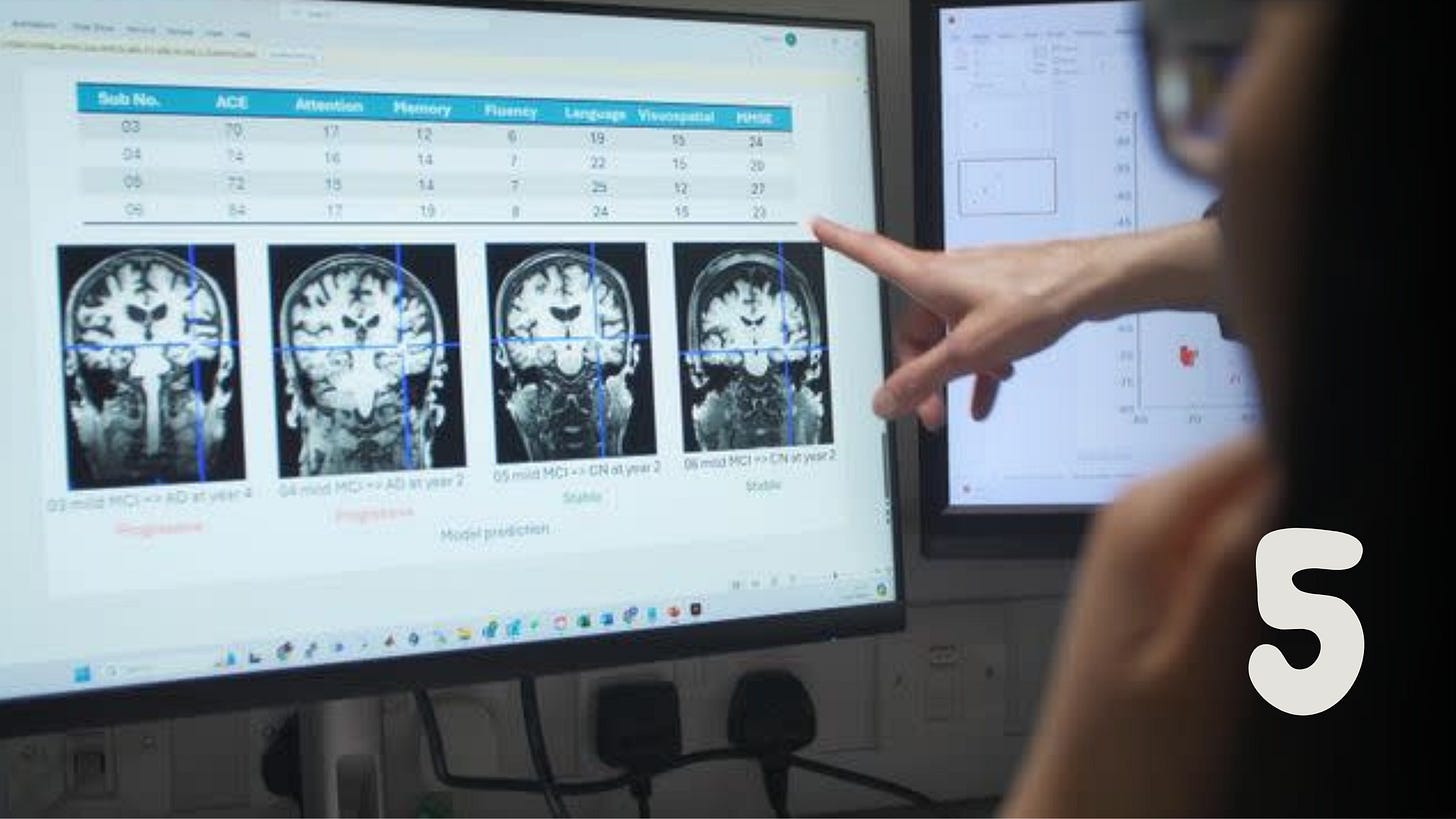🎉 LLMs in Spreadsheets, Levels to AGI, AI Education, Crawling YouTube, Early Alzheimer’s Detection
New Microsoft Spreadsheet-Focused LLM, OpenAI's 5 Levels to AGI, Education of the Future, Google Gets Crawled, Early Alzheimer's Detection
Welcome to this week’s edition of AImpulse, a five point summary of the most significant advancements in the world of Artificial Intelligence.
Here’s the pulse on this week’s top stories:
What’s Happening: Microsoft researchers just published new research introducing SpreadsheetLLM and SheetCompressor, new frameworks designed to help LLMs better understand and process information within spreadsheets.
The details:
SpreadsheetLLM can comprehend both structured and unstructured data within spreadsheets, including multiple tables and varied data formats.
SheetCompressor is a framework that compresses spreadsheets to achieve up to a 25x reduction in tokens while preserving critical information.
By using spreadsheets as a "source of truth," SpreadsheetLLM may significantly reduce AI hallucinations, improving the reliability of AI outputs.
Why it matters: Spreadsheets have long been the backbone of business analytics, but their complexity and format have often been an issue for AI systems. This increase in capabilities could supercharge AI’s use in areas like financial analysis and data science — as well as eventually see more powerful integration of LLMs right into Excel.
What’s Happening: OpenAI reportedly internally introduced a new five-tier system to track its progress toward artificial general intelligence (AGI), offering a new glimpse into how the company envisions the path toward human-level AI.
The details:
The classification system ranges from Level 1 (current conversational AI) to Level 5 (AI capable of running entire organizations).
OpenAI believes its technology is currently at Level 1 but nearing Level 2, dubbed ‘Reasoners.’
The company reportedly demonstrated a GPT-4 research project showing human-like reasoning skills at the meeting, hinting at progress towards Level 2.
Level 2 AI can perform basic problem-solving tasks on par with a PhD-level human without tools, with Level 3 rising to agents that can take action for users.
Why it matters: The definition and roadmap towards AGI have previously been murky, and OpenAI’s alleged system could help establish more concrete benchmarks. While some may be disappointed at only being at 1 or 2 out of 5, exponential acceleration means we may move up the ladder faster than we can imagine.
What’s Happening: OpenAI founding member and former Tesla Director of AI Andrej Karpathy just announced the launch of Eureka Labs, a new AI-integrated education platform — coming just months after his departure from OpenAI.
The details:
Karpathy’s post calls Eureka Labs an “AI-native” school, leveraging advanced AI to enhance the learning experience.
Its first offering, LLM101n, is an undergraduate-level course teaching students to train their own AI models.
The platform combines human expertise with AI teaching assistants to guide students, with plans to offer both digital and physical cohorts.
Karpathy announced his departure from OpenAI in February to pursue personal projects, and has since been posting educational AI videos on YouTube over the last year.
Why it matters: From hyper-personalized learning to advanced, on-demand AI tutors, education is about to be massively reshaped in the coming years—and the sector just gained one of the most well-respected scientists in the field to help lead the way.
What’s Happening: A new investigation by Proof News just revealed that tech giants including Apple, Anthropic, Nvidia, and Salesforce used content from over 170,000 YouTube videos to train their AI models without creators’ consent.
The details:
The dataset, called “YouTube Subtitles”, contains transcripts from over 48,000 channels, including popular creators, news outlets, learning channels and more.
Nonprofit EleutherAI compiled the data as part of a larger collection called ‘The Pile’, intended to provide training materials for developers and academics.
Creators were unaware their content had been used for AI training purposes, with YouTube’s ToS also prohibiting the use without permission.
Apple reportedly used the dataset to train OpenELM, a model related to new AI features for iPhones and MacBooks.
Why it matters: While the use of these transcripts isn’t going to create the best vibes with creators — we’ve yet to see many legal ramifications for firms in these cases. With this dataset also being public through EleutherAI, its hard to see anything other than bad PR coming from this report, despite the ethical/moral implications it raises.
What’s Happening: Researchers from Cambridge University just developed a new AI tool that can predict whether patients showing mild cognitive impairment will progress to Alzheimer’s disease with over 80% accuracy.
The details:
The AI model analyzes data from cognitive assessments and MRI scans — eliminating the need for costly, invasive procedures like PET scans and spinal taps.
The tool categorizes patients into three groups: those likely to remain stable, those who may progress slowly, and those at risk of rapid decline.
The AI accurately identified 82% of cases that would progress to Alzheimer’s and 81% of cases that would remain stable, significantly reducing misdiagnosis rates.
The AI’s predictions were validated using 6 years of follow-up data and were tested on memory clinics in several countries to prove global application.
Why it matters: With a rapidly aging global population, the number of dementia cases is expected to triple over the next 50 years — and early detection is a key factor in how effective treatment can be. With AI’s prediction power, a new era of proactive treatment may soon be here for those struggling with cognitive decline.






